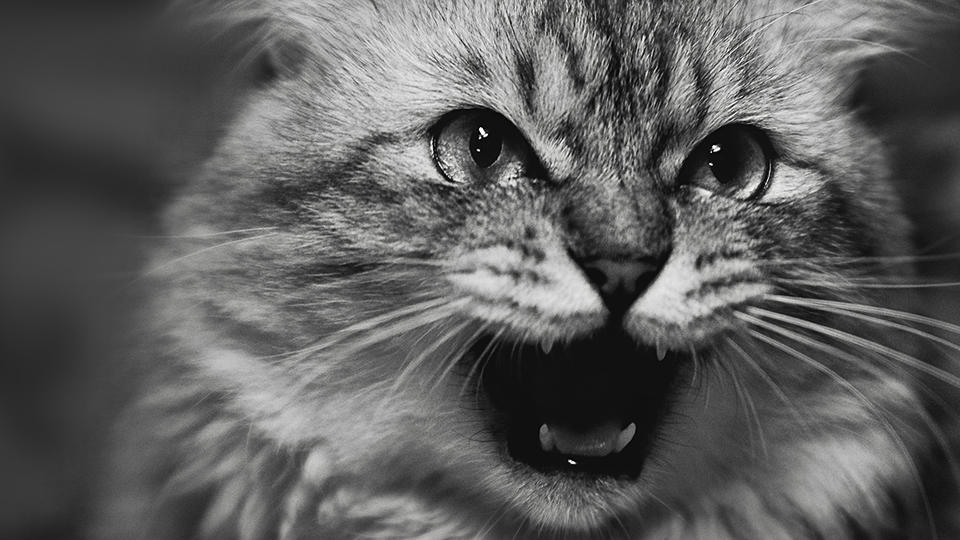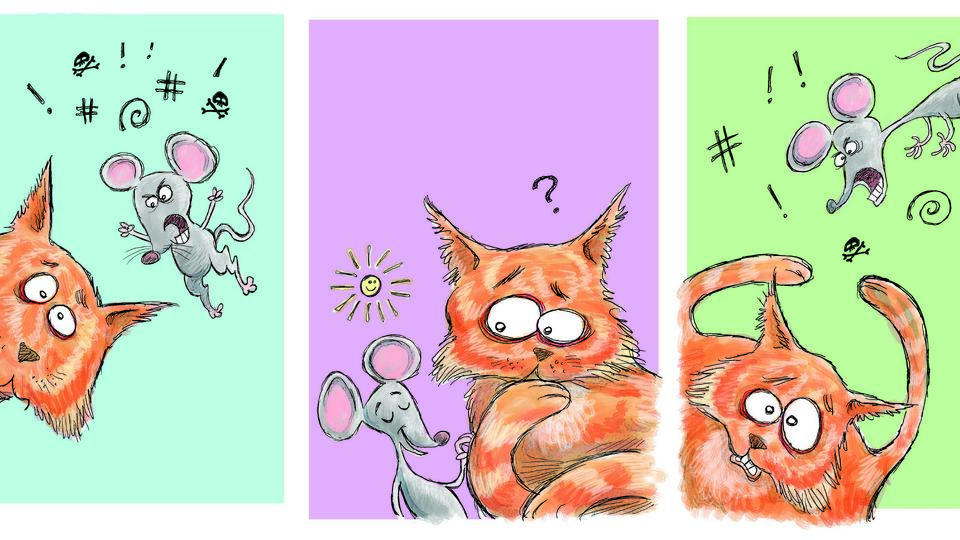
Mad About You
How A Dignified Display Of Ire Can Add A Positive Glow To Negotiations
Q&A with Rice Business Professor Hajo Adam (former Rice Business professor)
How A Dignified Display Of Ire Can Add A Positive Glow To Negotiations
While a spoonful of sugar does indeed help the medicine go down, a smidge of angry dust can actually sweeten the outcome of business negotiations, recent research shows.
In a new paper coauthored with Jeanne Brett of Northwestern University titled “Everything in Moderation: The Social Effects of Anger Depend on Its Perceived Intensity,” former Rice Business Professor Hajo Adam suggests that successful negotiators should consider not just whether to show ire – but exactly how.
“Scholars have repeatedly asked if it is good or bad to express anger in negotiations,” the authors write. “The current research indicates that negotiators should not just contemplate whether or not to express anger toward others, but also how to express anger toward others."
The researchers found that as displays of anger intensity increased, the concessions made also increased. But at a certain point, as anger intensity visibly spiked, concessions from the other negotiator dropped.
So moderation, a lifelong ambition for many in their personal lives, also is key in deal making. Adam discussed his findings with Rice Business Wisdom.
RBW: People have a hard time defining moderation in terms of diet, but it is vital for overall health. How can we find the right temperature for anger when conducting a negotiation?
HA: It depends on your goal for the negotiation. If your goal is to establish a good relationship with your counterpart, research shows that expressing anger will generally prevent you from reaching that goal. If your goal is to gain some concessions from your counterpart, research shows that expressing anger with moderate intensity can enable you to reach that goal. If your anger becomes too intense, however, it will start to backfire. The key is to convey that you are angry in a way that is sufficiently clear, but without being inappropriate. Where exactly that threshold lies likely depends on the negotiation context, the relationship between the negotiators and the negotiators themselves.
RBW: Is the ability to moderate anger displays a skill that can be learned, or an art that only a few can finesse?
HA: I have not done research on this specific question. However, I have run studies in which we simply instructed participants to express anger and gave them some specific recommendations about how to do so. Most of our participants were undergraduates, so presumably they were not very experienced with expressing anger in negotiations. However, on average, they were still able to follow our instructions and express anger in order to extract larger concessions from their negotiation counterparts.
RBW: Are there applications for experimenting with anger expression in other arenas in life?
HA: I think it would be interesting to explore the effects of expressing anger of different intensity levels in other areas as well. For example, prior research shows that police interrogators or bill collectors need to get angry to perform well at their jobs. It is possible that in these situations, anger displays of high intensity are more effective than anger displays of low or medium intensity.
RBW: Other areas of your research in business negotiations indicate that being unpredictable can help in gaining the upper hand. Is a measure of anger part of that approach, or to be used separately?
HA: In our previous research, we actually manipulated being unpredictable by having negotiators oscillate between expressing anger and happiness throughout the negotiation. So in a way, we manipulated emotional unpredictability, and anger was very much part of that approach.
RBW: If both sides have these skills, how do you avoid coming to a stalemate?
HA: I am not sure I would call these behaviors “skills,” but as long as the anger expressions are kept at a reasonable level, it will hopefully not detract too much from a meaningful discussion of the negotiation issues, so that an impasse can be avoided. Of course, if both parties get very frustrated and start yelling at each other, the conflict can escalate quickly and a stalemate becomes more likely. If time allows, I would recommend taking a break to calm down and restart the negotiation with cooler heads.
RBW: Once anger displays enter the negotiation, how do negotiators decide if they are facing healthy bargaining tactics or behavior that is simply outlandish?
HA: As mentioned above, where exactly that threshold lies likely depends on the negotiation context, the relationship between the negotiators and the negotiators themselves. For example, in some of my early work I show that expressing anger of moderate intensity elicits larger concessions from European-American counterparts – but the same anger expressions backfire and elicit smaller concessions from East Asian counterparts. So contextual factors can always influence how much anger is perceived as appropriate.
RBW: Is there anyone in the public eye who is particularly good or bad at this moderation?
HA: Nobody comes to mind because we do not often see famous people in actual negotiation situations. High stakes negotiations usually take place behind closed doors.
RBW: I distinctly remember when my three-year-old saw a bicycle, she reminded me how much she loved me, and then she asked for the bike. I knew I was being had, and that I was headed for a lifetime of shrewd negotiation. So she didn’t get the bike. Still, if she'd thrown a fit, I'd have been even less inclined to give in. If she had deftly applied just a touch of anger, though, might she have gotten that bike?
HA: Yes, this is exactly in line with our research. Throwing a fit is akin to expressing high-intensity anger. We perceive it as inappropriate, and in the case of our children, we also want to teach them that this behavior is unacceptable, so we are even more motivated to not concede but stand our ground instead.
RBW: Why do we seem to have to devolve to get what we want? Where is it that one learns that some petulance works better than "kissing up"?
HA: To be clear, I see expressions of anger as a last resort in a negotiation. In general, I recommend a more positive approach. However, when you see that a more positive approach is not working, but you need to reach a deal because you do not have any alternatives, then you need to resort to other tactics in order to move the negotiation forward. Expressing anger can be one such tactic. Without it, your counterpart may not realize that you are not happy with how things are going. So it is important to communicate your discontentment – either verbally and explicitly, or more subtly through emotions like anger.
Hajo Adam is a former assistant professor of management at Jones Graduate School of Business at Rice University.
Never Miss A Story


